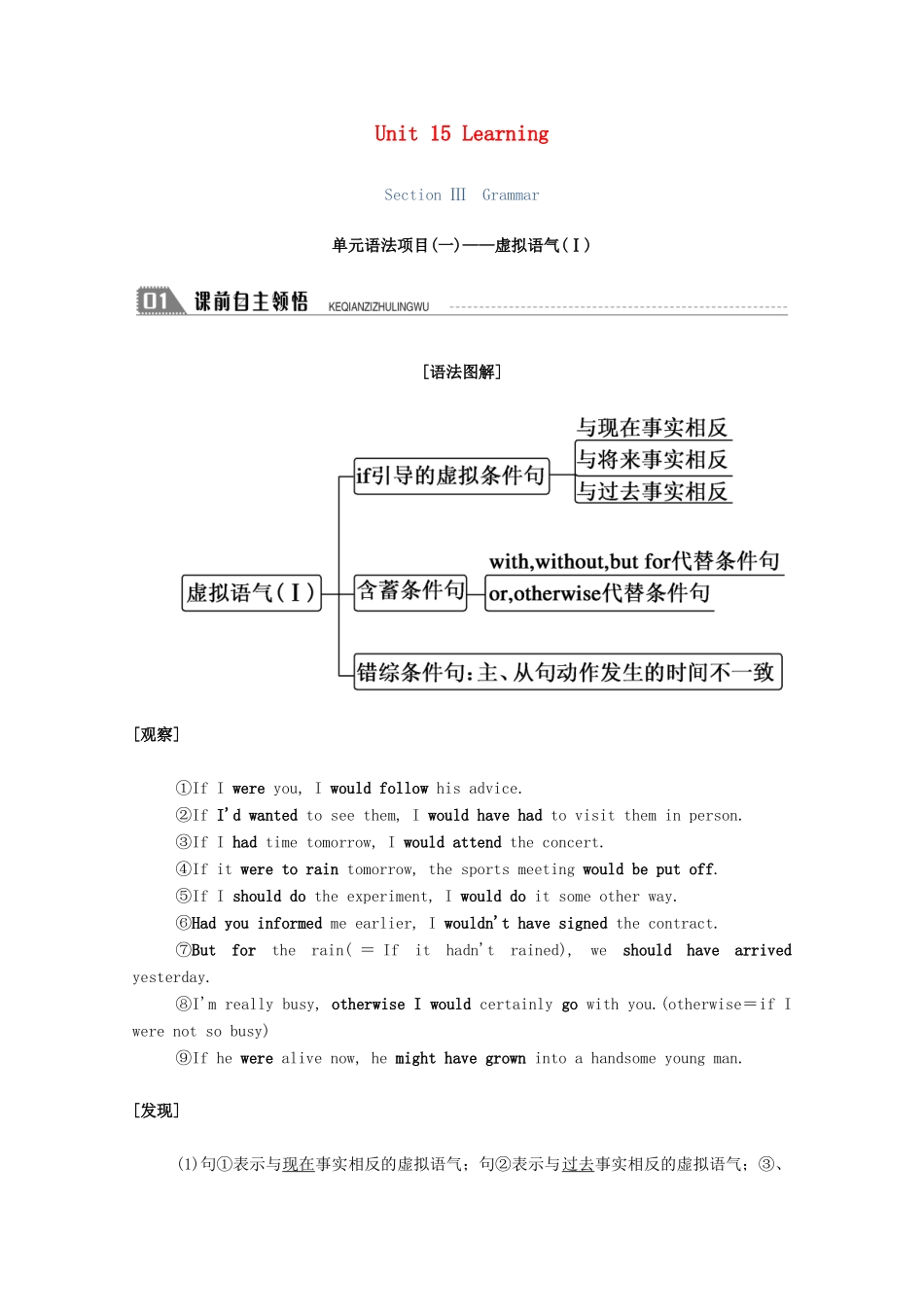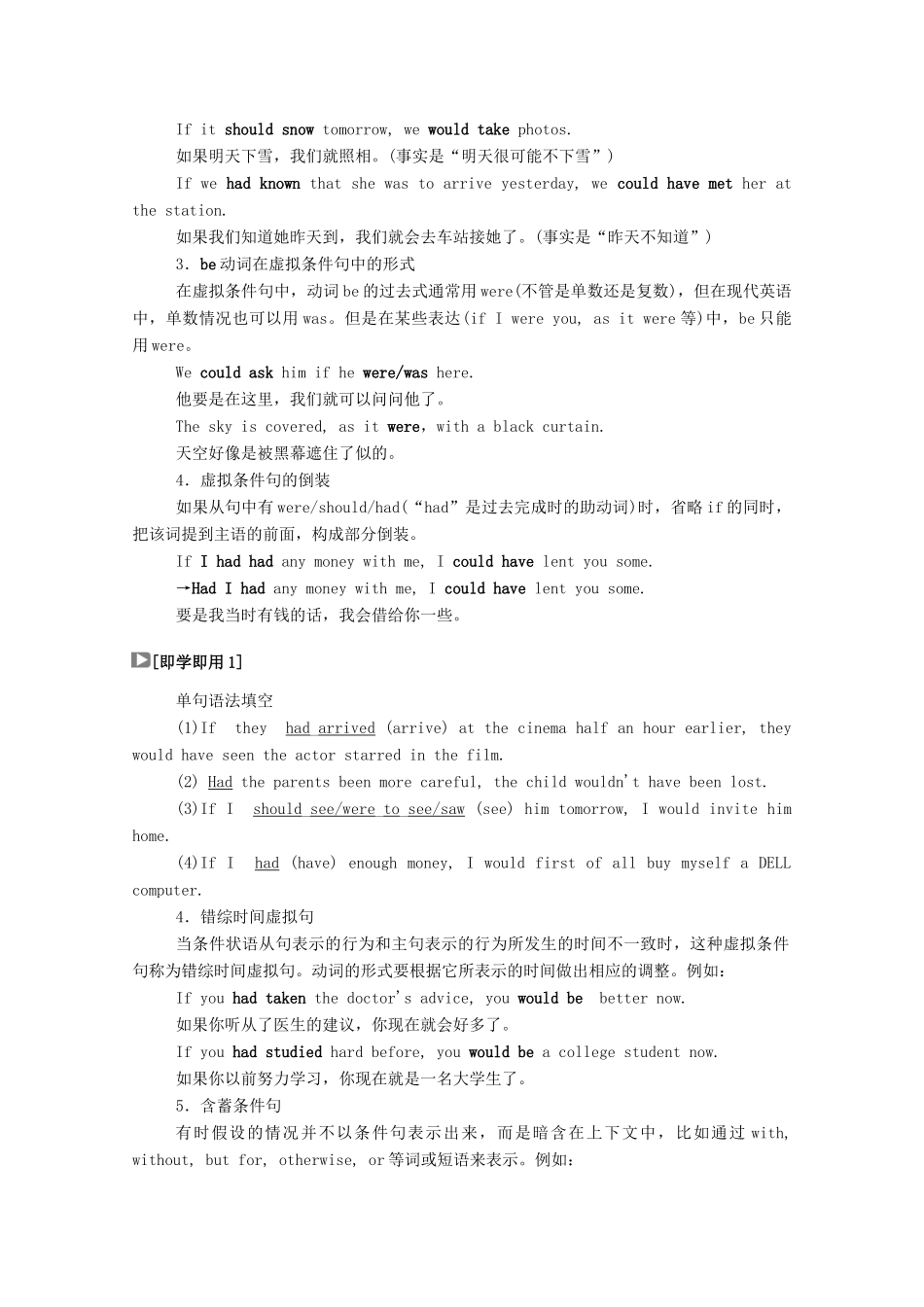Unit 15 LearningSection Ⅲ Grammar单元语法项目(一)——虚拟语气(Ⅰ)[语法图解][观察]①If I were you, I would follow his advice.②If I'd wanted to see them, I would have had to visit them in person.③If I had time tomorrow, I would attend the concert.④If it were to rain tomorrow, the sports meeting would be put off.⑤If I should do the experiment, I would do it some other way.⑥Had you informed me earlier, I wouldn't have signed the contract.⑦But for the rain( = If it hadn't rained), we should have arrived yesterday.⑧I'm really busy, otherwise I would certainly go with you.(otherwise=if I were not so busy)⑨If he were alive now, he might have grown into a handsome young man.[发现](1)句①表示与现在事实相反的虚拟语气;句②表示与过去事实相反的虚拟语气;③、④、⑤句表示与将来事实相反的虚拟语气。(2)句⑥中 if 省略,从句要倒装。(3)虚拟条件句中,表示与现在事实相反的假设时,be 动词一般用 were。(4)⑦、⑧句是含蓄 虚拟条件句;句⑨是错综时间虚拟条件句,从句说明的是现在的情况,主句说明的是过去的情况。在英语中,语气分为陈述语气、疑问语气、祈使语气和虚拟语气。虚拟语气表示说话人的愿望、假设、猜测或建议,多表示与事实相反。虚拟语气通过谓语动词的变化形式来表示。虚拟语气用于条件状语从句中1.条件从句有两类:① 真实条件句。如果假设的情况有可能发生,就是“真实条件句”。*If time permits, we'll go fishing together.如果时间允许的话,我们就一起去钓鱼。② 虚拟条件句。如果假设的情况与事实相反,则为“虚拟条件句”。*If it had rained yesterday, we would have stayed at home.如果昨天下雨的话,我们就会待在家里。2.虚拟语气在虚拟条件句中的用法:If I had time now, I would go with you.如果现在有空的话,我就和你去了。(事实是“我没有时间”)If I were you, I could take his advice.如果我是你,我可能就接受他的建议了。(事实是“我不是你”)If he came tomorrow, I would do it with him.假如明天他来的话,我就跟他一起做这件事。(事实是“明天他很可能不来”)If...


